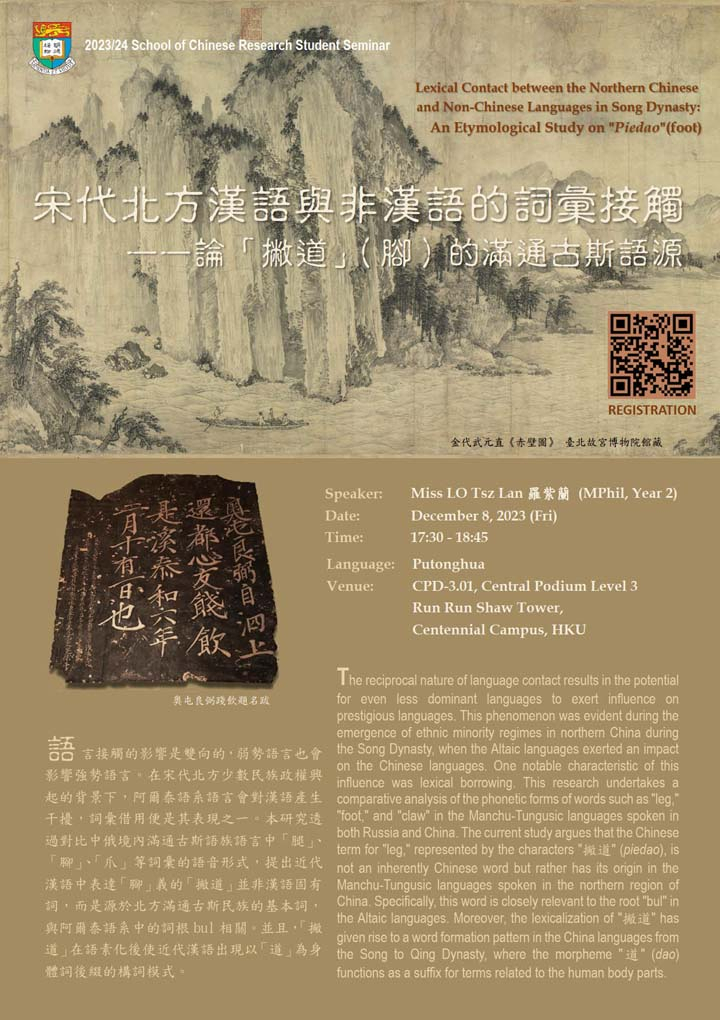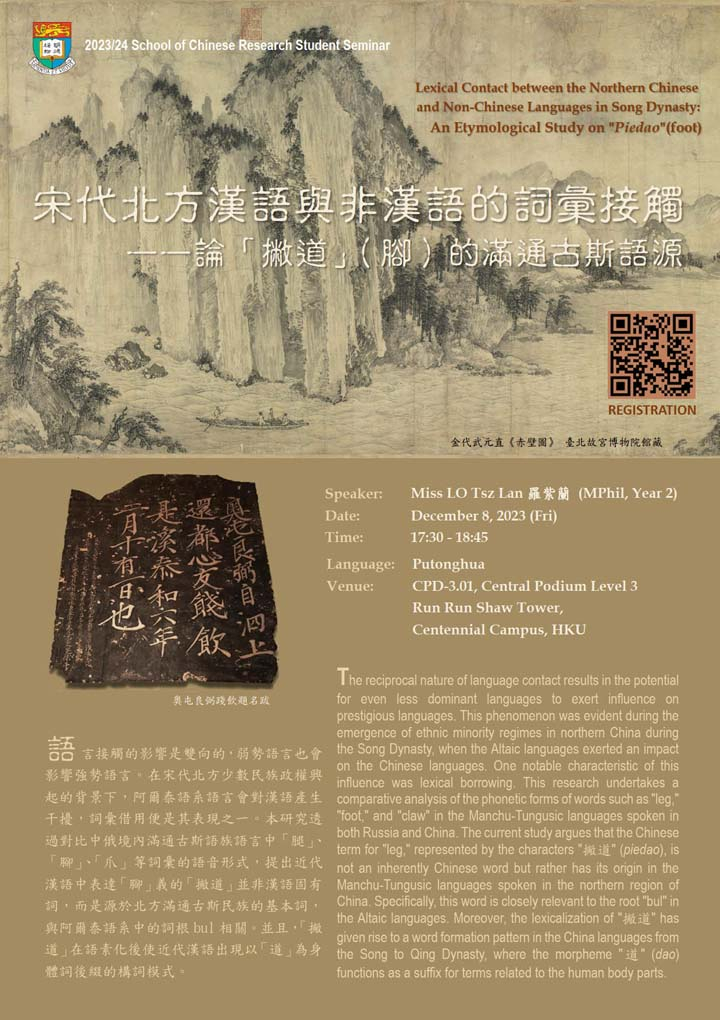宋代北方漢語與非漢語的詞彙接觸——論「撇道」(腳)的滿通古斯語源 Lexical Contact between the Northern Chinese and Non-Chinese Languages in Song Dynasty: An Etymological Study on "Piedao"(foot)

2023/24 School of Chinese Research Student Seminar
宋代北方漢語與非漢語的詞彙接觸——論「撇道」(腳)的滿通古斯語源
Lexical Contact between the Northern Chinese and Non-Chinese Languages in Song Dynasty:
An Etymological Study on "Piedao"(foot)
Abstract:
語言接觸的影響是雙向的,弱勢語言也會影響強勢語言。在宋代北方少數民族政權興起的背景下,阿爾泰語系語言會對漢語產生干擾,詞彙借用便是其表現之一。本研究透過對比中俄境內滿通古斯語族語言中「腿」、「腳」、「爪」等詞彙的語音形式,提出近代漢語中表達「腳」義的「撇道」並非漢語固有詞,而是源於北方滿通古斯民族的基本詞,與阿爾泰語系中的詞根bul相關。並且,「撇道」在語素化後使近代漢語出現以「道」為身體詞後綴的構詞模式。
The reciprocal nature of language contact results in the potential for even less dominant languages to exert influence on prestigious languages. This phenomenon was evident during the emergence of ethnic minority regimes in northern China during the Song Dynasty, when the Altaic languages exerted an impact on the Chinese languages. One notable characteristic of this influence was lexical borrowing. This research undertakes a comparative analysis of the phonetic forms of words such as "leg," "foot," and "claw" in the Manchu-Tungusic languages spoken in both Russia and China. The current study argues that the Chinese term for "leg," represented by the characters "撇道" (piedao), is not an inherently Chinese word but rather has its origin in the Manchu-Tungusic languages spoken in the northern region of China. Specifically, this word is closely relevant to the root "bul" in the Altaic languages. Moreover, the lexicalization of "撇道" has given rise to a word formation pattern in the China languages from the Song to Qing Dynasty, where the morpheme "道" (dao) functions as a suffix for terms related to the human body parts.








